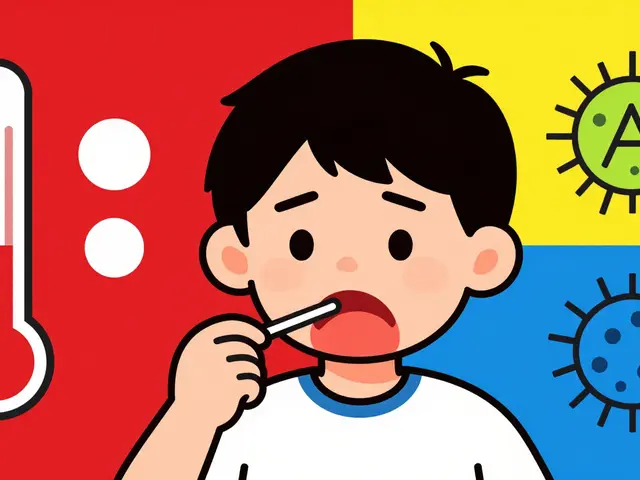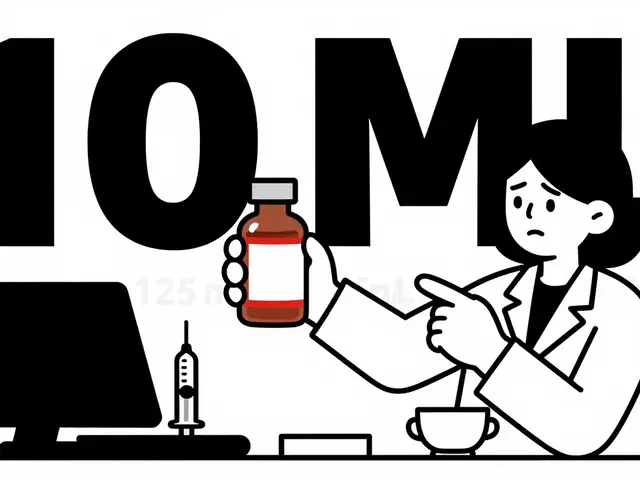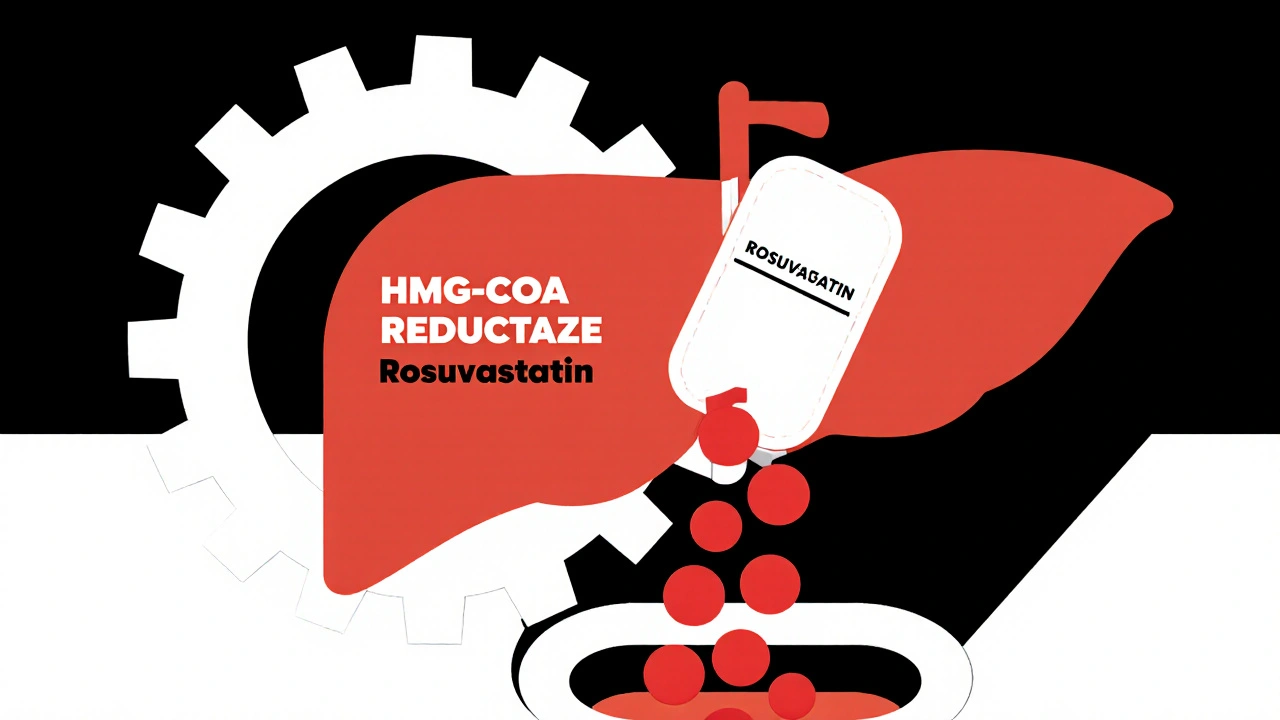Rosuvastatin: What It Is, How It Works, and What You Need to Know
When your doctor says you need to lower your cholesterol, rosuvastatin, a prescription statin medication used to reduce LDL (bad) cholesterol and lower the risk of heart attack and stroke. Also known as Crestor, it’s one of the most potent cholesterol-lowering drugs available today. Unlike some older statins, rosuvastatin works at lower doses and stays active in your body longer, which is why many people take it just once a day—often in the evening.
It doesn’t just lower cholesterol. Rosuvastatin also helps stabilize plaque in your arteries, reducing the chance of a clot forming and causing a heart attack or stroke. People with diabetes, high blood pressure, or a family history of early heart disease often end up on it. It’s not a magic pill, though. It works best when paired with a diet low in saturated fat, regular movement, and not smoking. If you’re on rosuvastatin, you’re not just taking a pill—you’re making a daily choice to protect your heart.
Some people wonder how it compares to other statins like atorvastatin or simvastatin. Rosuvastatin tends to lower LDL more aggressively at equivalent doses, but it also carries a slightly higher risk of muscle-related side effects in certain groups. That’s why doctors start low and go slow, especially for older adults or those with kidney issues. It’s also worth noting that while rosuvastatin is great for cholesterol, it doesn’t fix everything. Blood pressure, blood sugar, and inflammation still matter. That’s why you’ll often see it paired with other meds in patients with multiple risk factors.
There’s a lot of confusion around generic vs. brand-name rosuvastatin. The truth? The generic version works just as well. The FDA requires it to meet the same standards for absorption and effectiveness. The only real difference is cost—generic rosuvastatin can be a fraction of the price. If you’re paying full price for Crestor, you’re likely overpaying.
Side effects? Most people tolerate it fine. But muscle pain, especially in the shoulders or thighs, is the most common complaint. If it’s mild and goes away with rest, it’s usually not a problem. If it’s severe or you notice dark urine, stop taking it and call your doctor right away—that could be a sign of a rare but serious condition called rhabdomyolysis. Liver tests are checked before you start and sometimes after, but serious liver damage from rosuvastatin is extremely rare.
What you won’t find in the brochure is how real people manage it. Some take it with food to avoid stomach upset. Others set phone reminders because forgetting a daily pill is easy when you feel fine. A few switch to ezetimibe or PCSK9 inhibitors when statins don’t cut it—or cause too many side effects. And yes, there are natural ways to help lower cholesterol, like soluble fiber, plant sterols, and omega-3s—but none of them replace rosuvastatin for high-risk patients.
The posts below cover real-life experiences and practical advice tied to rosuvastatin and the broader world of heart health. You’ll find comparisons with other cholesterol drugs, tips on managing side effects, how insurance affects your costs, and what to ask your doctor during your next visit. Whether you’ve just been prescribed rosuvastatin or have been on it for years, there’s something here that’ll help you take better control of your heart health.
- By Percival Harrington
- /
- 15 Nov 2025
Rosuvastatin Potency and Side Effects: What to Monitor
Rosuvastatin is a potent statin that lowers LDL cholesterol by up to 63%, but requires careful monitoring for muscle pain, liver issues, kidney function, and blood sugar changes. Learn what to check and when.






